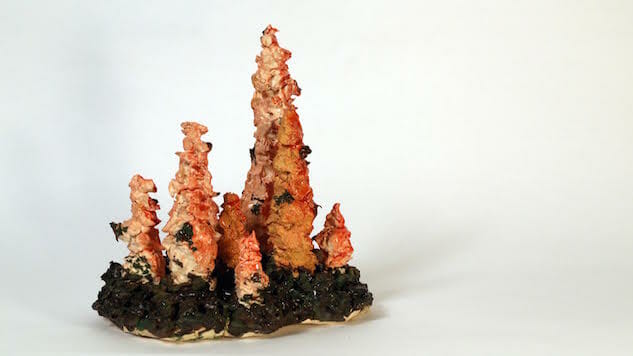MOCA’s Exhibit on Chinese Food Tackles Authenticity and Identity
Sculptures by Heidi Lau and Lu Zhang
What is authentic Chinese food? The question may seem simple at first glance, but for many Chinese Americans, authenticity can vary widely depending on who you ask. For me, Chinese food has always been a way to connect with the history and culture of my immigrant parents. But in my search for “real” Chinese food, I’ve discovered that my identity as an American has as much to do with my idea of authenticity as does my Chinese heritage.
These issues of authenticity and cultural identity are at the heart of the Museum of Chinese in America’s (MOCA) newest exhibit on Chinese food, which opens on October 6, 2016 in New York City. Called Sour, Sweet, Bitter, Spicy: Stories of Chinese Food and Identity in America, the exhibit will feature a multimedia video installation depicting over 30 chefs from across the country of Chinese and Asian American descent as they talk about their relationship and experience with their own version of Chinese food. They include celebrity chefs like Anita Lo and Martin Yan and restaurant owners like Danny Bowien as well as several generational home cooks.
“The oral histories of each chef are weaved together where it’s almost like they are having a conversation together, talking about their experiences with Chinese food — whether it’s about tackling the perception of Chinese food in America, or their own personal relationships and memories of food from childhood,” says Sophie Lo, the museum’s public programs and marketing associate. The narrative emphasizes the personal stories of each chef, revealing how geography, tradition, creativity, and family have shaped the way they cook.
Herb Tam, MOCA’s Curator and Director of Exhibitions, believes the exhibit is especially important as more and more Chinese Americans are grappling with food identity and sharing their experiences on social media. “Given this new environment for Chinese food, we wanted to give people an opportunity to have conversations about this subject,” says Tam. “We want people to think for themselves how food represents who they are.”
A lot of these conversations center on the question of authenticity — what it is and whether or not it exists — and MOCA aims to bring this debate to the forefront for its visitors. “We’re not trying to provide one answer about authenticity,” says Tam.
-

-

-

-

-

-

-

-

-

-

-

-

-

-

-

-

-

-

-

-

-

-

-

-

-

-

-

-

-

-

-

-

-

-

-

-

-

-

-

-








































